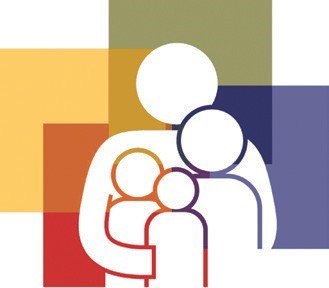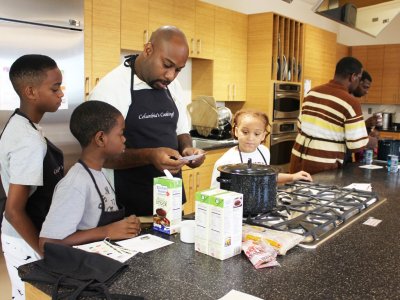Midlands Fatherhood Coalition
NLD ID #26266
Contact Information
Hours of Operation
Monday - Thursday 8:30 - 5:30 Fridays are for appointments only
Program Overview
As part of the South Carolina Center for Fathers and Families network, we provide free community-based services and support for fathers and families across the Midlands with physical offices in Richland, Lexington and Sumter counties.
The Mission of Midlands Fatherhood Coalition is to engage fathers in the positive support of their children and to enhance support for fatherhood throughout the Midlands.
How we can help:
We provide community-based programs and support groups for fathers, free of charge.
We help fathers connect to other services they need so they can meet their responsibilities and secure their parental rights.
We offer job coaching and employment connections that benefit fathers, their families and employers in our communities.
We're a resource for local organizations that want to provide family support and father-friendly services.
We know engaged fathers are the best way to get to the root of problems that affect all of us—so that we can make real progress toward ending poverty, reducing crime and improving outcomes for children.
When fathers are engaged, children are:
More likely to graduate from high school
Less likely to go to jail
Better positioned to be good parents themselves
We strive to help fathers better themselves, their relationships and their understanding of how important a responsible, active father is in a child's life. Building stronger families creates a better South Carolina for every citizen.
We are always looking for community partners who want to collaborate with us—from local law enforcement and family court judges to health clinics and churches who, like us, want to help fathers succeed.
.jpg)

Cost Info
All fatherhood services are free. We do offer anger management services through a consultant on site with fees on a sliding scale.Student and Volunteer Success Stories
Meet Worjroh Donaldson
Worjroh Donaldson enrolled in Midlands Fatherhood Coalition last October hoping to strengthen his relationship with his 18-year-old daughter. What he did not expect was to find support in the midst of kidney disease.
Donaldson was attending a weekly peer group session when Dawn Pender, nurse practitioner and Director of Health Access for the South Carolina Center for Fathers and Families, came in to conduct a routine health screening.
When she asked to check his blood pressure, he brushed her off. He knew she would not like the results, as he was already on dialysis treatment for kidney failure. Diagnosed with Type 1 diabetes at age 21 and considering the benefits of a pancreas-kidney transplant, he knew his health would spark a conversation.
Ultimately, Pender convinced him to let her examine him.
“I'm one of those people who sort of keeps things to myself. In my mind, I was thinking all types of negative things," Donaldson said. “She was real informative. She was uplifting."
Once Pender learned more about Donaldson's condition, she quickly leapt to his aid and offered to help in any way that she could.
“She basically coached me along. She gave me her card and said if I need anything, she's always available," Donaldson said.
Living with end-stage kidney failure is difficult. Donaldson has to travel often to receive medical care in Atlanta, Durham and Wake Forest. He also works full-time at the Fort Jackson Commissary and tries to attend weekly peer group sessions at Midlands Fatherhood Coalition.
“The simple thing is getting out of bed. I don't want to get up," Donaldson said. “I realized, without your kidney function, you just feel tired. To get that motivation to get up and go, trying to make my appointments, I feel like I get pulled in so many directions."
In spite of all the stress and uncertainty, Donaldson does what he can to keep a positive attitude.
“I pray," he said. “I can't worry about it." If there is a bright side to his diagnosis, he now has the opportunity to connect with his
daughter, who is also diabetic. Donaldson wants his daughter to learn from him and make smarter, healthier choices than he did in his youth.
“First thing's first, take care of yourself," he said. “The most important thing is, take care of your health when you're young. What you do when you're young, if you get the privilege to live a long life, it's all going to come back to you, good or bad."
Donaldson has come a long way, learning to open up about his experiences and sharing his story.
While he used to be consumed with negative thoughts and doubts, he's found hope. Hope that he can receive the transplant he needs, hope that he can continue to fight his illness and be a good father to his daughter.
“Most of the men on my father's side, they died in their 50's," he said. “So, I still feel like there's more for me to do, more good I have to do in life. I just want to find something that I really enjoy, that I can help more people. I don't just want to say I was here and I died. I want to make some type of difference in the community."
Education services
- Study for my high school equivalency exam
- Volunteer at a program
- Improve my workforce skills
